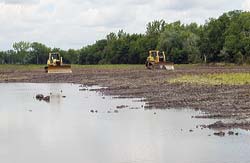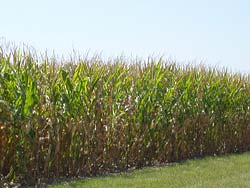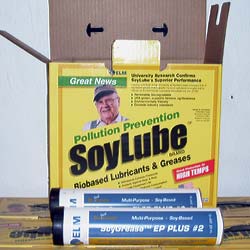Stewardship
No-till/Wetlands
The majority of I-80 Farms' land is no-tilled, which is a commonly used conservation practice utilized in this region to inhibit soil erosion.
We have several CRP and wetland acres. Most are small tracts of land consisting of five to twenty-five acres. Some of the CRP has been established for over twenty years. The wetland acres are relatively new; some of the oldest wetland acres have been maintained for ten years.
We also plant food plots for the wildlife on these acres. This helps to sustain the wetlands during the winter months. Our wildlife population continues to increase; pheasant numbers are relatively low; however, we do find pheasants on our wetlands. The numbers of turkeys found on our wetlands are substantial and the deer numbers remain high.
Our relatives, friends and hunting dogs enjoy the wetland areas for a relaxing day of wildlife and to participate in a hunting or sporting event. Over the past twenty years, we have competitively hunted many trophy deer, turkeys and pheasants.
This year we are adding another wetland site. This site will be forty-two acres in size. Construction is in the final stages of completion.
In summary, with the high cost of production in agriculture today, these acres are not suitable for cultivation. The wetlands serve to filter water and reduce siltation. Overall, it results in win, win situation. |
 |
Crop Production
Hybrid selection has always been an important decision on every farmers mind. In the last few years biotech crops have also weighed in on this ever-important decision. Biotech crops have largely been a success throughout the world. Regionally the advantages have been clear. Our crop has seen a 50% reduction in pesticide and herbicide since the introduction of insect and herbicide resistant traits in corn and soybeans. This year on the farm every variety of corn and soybeans we have selected will be resistant to the herbicide Roundup. Roundup has been proven safe and poses no risk to humans or the environment. This chemical also will break down in natural elements so you can plant in the treated area the next day. We have also incorporated many pest resistant corn varieties this year. Due to the great success of these traits we hope to eliminate the use of pesticides. By incorporating pest resistant traits and not pesticides we can target only insects that feed on the crop and leave behind the beneficial insects. The demands of a hungry world do not have to overlook environmental concern with today's technology. With I-80 Farms' continued dedication to conservation and the environment, we have found a new partner in biotech crops. |
 |
Technology and Data Collection
From the moldboard plow to giant combines that harvest an acre of ground in less than a few minutes, technology has always played an important role in agriculture. We have added a new innovative technology that will enhance seed placement efficiency. This recent advancement in planter technology in called the TruCount System. The TruCount System, coupled with a GPS locator, allows the planter to only plant seed where it's needed, shutting planter row units on and off as they cross over previously planted areas. TruCount technology will save seed by insuring we never over plant. This will also eliminate low yield due to over planting, ultimately saving money by reducing excessive double planting. With the introduction of GPS technology in agricultural applications, farming in the Midwest has made some giant leaps forward. We have just brushed the surface of GPS applications; but you may notice our rows are a little straighter.
During the past winter months; we have been assembling an assortment of soil, yield, fertilizer and tilled drainage maps, specific for each farm. This will help us to better serve our landowners so they will have a complete and accurate record of improvements and historical yield and soil data for their farms. |
 |
Soy Lube
|
 |